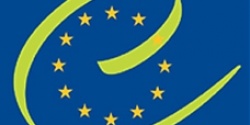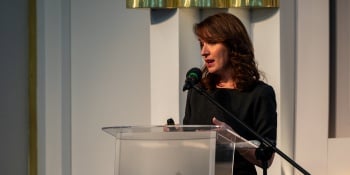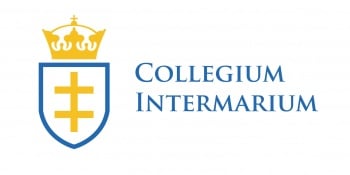Published: 08.06.2013

Grégor Puppinck
Director of the European Centre for Law and Justice
A written question addressing the will of the French Government to ‘deconstruct gender stereotypes’ in school for all children aged 6 and over, has been referred to the Committee of Ministers of the Council of Europe on the 4th of June 2013. This committee has the special role of monitoring the Member State’s compliance with democracy, human rights and rule of law.
The author of this question is Mr. Luca Volontè, Italian MP, President of the PPE (centre- right) to the Parliamentary Assembly of the Council of Europe (PACE). In April, he had taken this same stance regarding the police crackdown on mass demonstrations for the defence of the family.
This question denounces the ideological nature of the gender theory and the violation of the rights of children, parents and teachers which is a result of its compulsory education. It exposes the French Government to criticism from other European governments in order to force it to restrain the implementation of his project.
It is necessary to note that the possible removal of the word ‘gender’ from the final text of the Peillon School Act will not affect the will of the government to use the school to ‘ deconstruct gender stereotypes’ ; vigilance will have to be exercised in all circumstances in the practical implementation of this ‘education’.
The Committee of Ministers shall provide a detailed, written response to this question in the next few weeks. With this end in view, it shall ask the French government to describe its project and how the government intends on implementing it.
Here is the text of the written question :
Written question No. 638 to the Committee of Ministers | Doc. 13222 | 04 June 2013
Obligatory deconstruction of “gender stereotypes” and violation of parents’ rights
By : Mr Luca VOLONTÈ, Italy, EPP/CD
The French Government is preparing to introduce, from the start of the 2013-2014 school year, a new compulsory sex education course based on the “gender theory” approach for all children aged 6 and over in State and private schools (including denominational schools). This government plan is causing huge concern among parents and teachers.
Presented under the guise of promoting sex equality and combating homophobia, the purpose of this course is to “replace categories such as sex (…) with the concept of gender, which (…) shows that the differences between men and women are not based on nature but are historically constructed and socially reproduced” (Julie Sommaruga, member of the French National Assembly’s Cultural Affairs Committee, 28 February 2013). In a letter to chief education officers dated 4 January 2013, the French Minister for Education, Vincent Peillon, said that the government had decided to focus its effort to change mentalities on young people. In his view, the purpose of school is to “remove students from all forms of determinism, whether familial, ethnic, social or intellectual” (L’Express, 2 September 2012).
The precise content of this course is still being worked out. In a December 2012 report, the General Inspectorate of Social Affairs recommended that school should start the “fight against gender stereotypes … at the earliest possible age”, deconstruct the “ideology of complementarity” between the sexes, and replace the words “boys” and “girls” with sexually neutral terms such as “friends” or “children”. School should prevent the process of “gender-based differentiation” and children’s psychosocial internalisation of their sexual identity.
This so-called “education” has no basis in science, so that, for the very large proportion of the population who do not adhere this “gender theory”, it constitutes indoctrination. It endangers children’s psychological equilibrium and parents will be faced with a dilemma: they will have to explain to their children that they must not believe everything they are told at school, but that they have to keep quiet about it so as not to be at odds with the official ideology. If such a curriculum is implemented, it will be a blatant violation of children’s best interests and parents’ natural rights.
The Universal Declaration of Human Rights acknowledges that “the family is the natural and fundamental group unit of society” (Art. 16.3) and that “parents have a prior right to choose the kind of education that shall be given to their children” (Art. 26.3). In ratifying the International Covenant on Civil and Political Rights, States undertook to “have respect for the liberty of parents (…) to ensure the religious and moral education of their children in conformity with their own convictions” (Art. 18.4). Even more explicitly, the European Convention on Human Rights states that “in the exercise of any functions which it assumes in relation to education and to teaching, the State shall respect the right of parents to ensure such education and teaching in conformity with their own religious and philosophical convictions” (Protocol, Art. 2).
Mr Volontè,
To ask the Committee of Ministers,
Can the Committee of Ministers reconfirm:
- that teaching must be objective and that, in a democracy, the State must not seek to manipulate children’s minds?
- that parents, and not the State, are the educators of their children?
What action will the Committee of Ministers take to ensure that the content of this curriculum is not indoctrination, but, on the contrary, that it is objective and respects children and parents’ rights?

• “In the United States, here in Poland, and around the world, we are experiencing a cultural revolution. We are literally at war,” said Tina Descovich, co-founder of Moms for Liberty, during a meeting in Warsaw, encouraging action to protect children from gender ideology.

• The collection of signatures for the Polish citizens’ legislative initiative “Stop the Pornography Drug” has come to an end.

The day of the decisive battle for the innocence of Polish children has arrived. Donald Tusk’s government has unveiled a radical proposal for compulsory sex education in the schools. On October 31, the Polish Ministry of Education published the core curriculum for a new school subject, “Health Education,” which has led to a great deal of controversy.

• In the three years of Collegium Intermarium’s existence, more than 400 people have benefited from this private university’s teaching offerings. The colleg